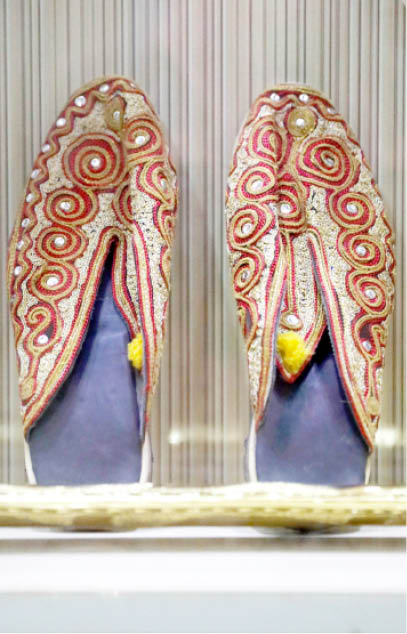Bama, a border town close to Cameroon, was regarded as a thriving commercial centre where international trade had peacefully bloomed for decades. A predominantly Kanuri town, many smaller ethnic groups co-existed peacefully side by side.
Sadly, in May, 2013 residents of Bama Local Government Area woke up to gunshots. The dreaded terrorist group, Boko Haram, literally meaning “Western education is forbidden,’’ which was aggressively attacking local communities around the area, had finally reached one of the political powerhouses of the state.
As most indigenes fled to other villages, many were stuck in Bama for weeks. In a tragic turn of events, the terrorist group overpowered the armed forces in the town and “captured’’ Bama as a caliphate. This would herald the beginning of many killings, abductions and destruction of properties. Some were rounded up and executed while videos of slaughters circulated the internet. This horrified, shocked and traumatised the world.
Many recount the endless onslaught of targeted killings on teachers and government officials in the ruthless focus on those the deadly sect viewed as Western educated.
As Bama sadly became a dangerous region of terrorist activities, thousands were displaced to neighbouring countries, such as Niger, Chad and Cameroon. In headlines across the world, the deadly attacks caused one of the worst humanitarian crises in the world. The horrors triggered emergency responses toward security, food, health and shelter needs of the displaced populations.
Internally displaced camps were set up across the state capital of Maiduguri and other states, as well as neighbouring countries to accommodate the thousands arriving for succour.
Even as violence destroyed the fabric of its society, many residents of Bama wallowing in trauma in camps for internally displaced persons remained optimistic and adamant about returning home. In most visits by the state and federal governments to address the displaced, the recurring request was a plea for rebuilding and resettlement. As a priority, the government’s focus was tackling security. Mercifully, the Muhammadu Buhari-led government, with the pressure from the international community and pleas for help from the Borno State Government, intensified efforts to tackle security issues in the state.
In an unprecedented turn of events, the terrorist group was viciously attacked, and in 2014, Bama was “liberated’’ by the Nigerian Armed Forces to the glee of indigenes. This ushered in more efforts to rebuild the destroyed town. The Kashim Shettima-led state government, aided by the armed forces, began talks of voluntary return of people. According to reports, the state government successfully returned 120,000 internally displaced persons from Maiduguri to Bama in 2018.
Currently, Bama Local Government Area sits peacefully, torn between trauma and triumph. It has returned some of its people, but thousands have died, others are afraid of returning, while some say they may never return as it harbours harrowing memories for them.
In this community of hope and despair sits the new Shehu of Bama, a young and modern prince who was sworn in after the death of his father in April, 2020.
The royal family, just like the everyday citizen, was not without its pain. Having been displaced after Bama was seized by the terrorist group, the family had also fled to Maiduguri to resettle, but had always remained hopeful to return one day. “It was my father’s dream to return to Bama,’’ he said in a wistful tone.
Despite the many daunting tasks and trauma after his father’s death, the new Shehu of Bama, Umar Ibn ShehuKyari Ibn Umar Elkanemi, who is the eldest son of the late Shehu, Kyari Ibn Umar Elkanemi, carries in the tradition of monarchy.
Sworn in by Governor Babagana Umara Zulum, the monarch, who has been directed to remain in the community to “give a sense of belonging’’ to his local community, is intent, not only on remaining amongst his people but is eager to revive the people’s culture.
“Thousands of our people have been displaced to different places. And there are many children who have been born in various areas. When these children grow up, they will not know anything about their culture. Therefore, we have to revive our culture as we resettle,’’ he said.
Currently, the Shehu’s palace is protected by the military. Within the rebuilt premises sits a section regarded as the Bama Emirate History and Culture Museum for the display of artefacts. The attire, shoes and few belongings of the late Shehu are inside a delicate glass in a bid to preserve and educate the people.
Other items such as horse regalia, traditional music instruments, local silver wear and more are seen across the room. “We have many things we can’t get back, but we are collecting artefacts from local residents who are donating some cultural items to help us teach and retain the culture,’’ Zanna Sunoma Maina, a royal custodian said.
Similarly, historians, royal guards and many custodians of the palace dress in traditional attires as they welcome visitors every day. “We have to stay here. We have to make the town as it was. We have to bring everything back and retain our cultures and norms, just like our ancestors did,’’ Maina added.

 Join Daily Trust WhatsApp Community For Quick Access To News and Happenings Around You.
Join Daily Trust WhatsApp Community For Quick Access To News and Happenings Around You.


